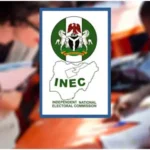The Agulu-Nanka gully erosion has the potential for an ecological disaster because the erosion causes frequent landslides.
A soil erosion management expert, Benneth Obele, noted that “erosion disaster in Nanka dates back to early 1920s when the gully sites were first observed near Eketai Market in Amako village as well as near Ududonka Shrine.”
Like Nanka, many other communities across the Southeast states of the federation are bedevilled with gully erosions that have cut off communities, stopped people from farming and changed the pattern of living.
After so many years, communities in these areas have become used to the situation and have tried to turn the gully erosion sites to their advantages by either creating foot-paths or farming in them.
But collaboration between the federal government and the World Bank is set to bring succour to residents of erosion prone areas in the South eastern part of the country.
The initiative known as Nigeria Erosion and Watershed Management Project (NEWMAP) is expected to be in operation for the next eight years and save over 2.2 million Nigerians from the menace of erosion.
Funding for the project include a strategic investment loan of $508.59m consisting of a $500m International Development Association concessional loan blended with Global Environment Facility and Special Climate Change Fund grants of $8.59m.
The Federal Government is expected to contribute $150m and this is broken down to $70m cash, and an in-kind contribution of $24m for staff, offices and payment of compensation for resettled people and another in-kind contribution of $56m by the participating states for staff, offices and feasibility designs of invention sites.
The project according to Mr Chikelo Nwune, NEWMAP National Coordinator, would drastically reduce the problem of erosion which residents of the South-east had contended with for many decades.
“This project is targeted to benefit over 2.6 million people by 2020 when it will wind up and about 4.2 million by 2042 being 30 years after the project’s effectiveness,” he added.
He noted that benefits of the project would also accrue to majority of the population which will relate to reconnecting transport corridors, reducing flooding, improving disaster risk preparedness and enhancing agricultural activities.
Nwune said that the project would support state-led interventions to prevent and reverse land degradation, initially focusing on gully erosion sites that threaten infrastructure and livelihoods in seven states of Abia, Anambra, Cross River, Ebonyi, Edo, Enugu and Imo.
Mr Ibrahim Gadu, an environmental and renewable energy consultant, told Daily Trust that NEWMAP was a timely intervention by government to save the Southeast from the challenges of erosion.
“The project is laudable, timely and very good as it will lead to the preservation of the water shed in the communities which had hitherto suffered untold hardship as a result of erosion as this project will now assist them to avoid water pollution, bring their agricultural culture back on track and above all, the biodiversities with which the eastern part of Nigeria is endowed will be preserved,” he added.
NEWMAP as designed by government would lead to environmental improvement due to land stabilisation, preservation of landscape and biodiversity, progressive restoration of vegetative cover, improved water quality downstream and reduced risks of flood.
The project, which is expected to be officially flagged off tomorrow, was approved for Nigeria by the World Bank in 2012 while the approval for the borrowing plan scaled through the National Assembly also in 2012.
Having obtained an approval also from the Federal Executive Council, government signed the financial and grant agreement with the IDA in April 2013 while the National Economic Council approved the project in August 2013.
The flag-off signals the commencement of work in the 35 sites already identified in the seven participating states.
 Join Daily Trust WhatsApp Community For Quick Access To News and Happenings Around You.
Join Daily Trust WhatsApp Community For Quick Access To News and Happenings Around You.

